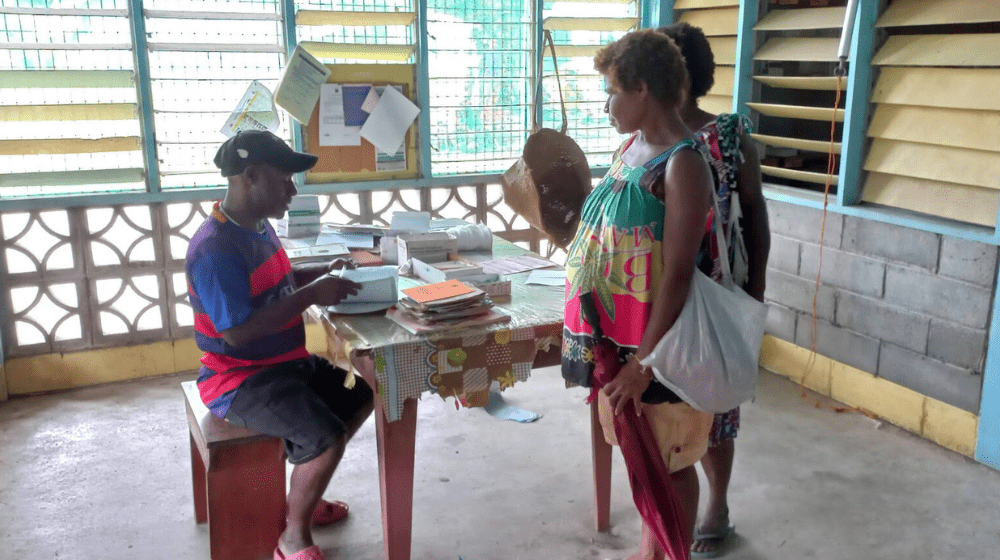A new survey conducted by UNFPA, in partnership with the National Department of Health, found that 57% of health facilities had the minimum required number of maternal health medicines in stock.
The Health Facilities Survey 2022 surveyed 149 facilities providing maternal health and delivery services in Papua New Guinea. Enumerators recorded the availability of 17 medicines. The Wold Health Organisation’s minimum global standard requires facilities offering maternal health and delivery services to have at least 7 of these medicines, inlcuding two mandatory medicines, oxytocin and magnesium sulfate.
Oxytocin assists in ensuring a safe delivery and magnesium sulfate reduces the risk of seizure in women with pre-eclampsia. These two medicines are critical for ending preventable maternal death. 75% of facilities reported oxytocin and 65% reported availability of magnesium sulfate.
Women in rural areas are most at risk from the lack of medicines, with 51% of rural health facilities reporting availability of the minimum of seven maternal health medicines.
Strengthening Maternal Health Medicine Supply Chains
The results of this study assist UNFPA and the National Department of Health in understanding and responding to the instances of stock-outs in health facilities. The most common reasons for stock-outs were delays in ordering and receiving these essential medicines.
The National Department of Health, with support from UNFPA, has been conducting logistics and supply chain management trainings for health workers in each province of Papua New Guinea. The trainings include health facility pharmacists, medical officers, nurses, and warehouse personnel to improve efficiency and reduce stock-outs and wastage across the health system.
UNFPA and Reproductive Health Commodities
UNFPA works with the National Department of Health (NDoH) to address the unmet need for family planning and reduce maternal mortality and morbidity. Through support to midwifery in-service training and equipment, procurement and distribution of contraceptives and reproductive health commodities, support to the Certification in Basic Pharmaceutical Management course for Pharmacy Assistants, and sexual and reproductive health advocacy, UNFPA’s partnership with NDoH focuses on strengthening local expertise in delivering improved health services Papua New Guinea.
With support from the Australian Government, UNFPA has completed a national Assessment for Reproductive Health Commodities and Services to assess the availability and quality of essential reproductive health commodities and quality of family planning and maternal health services in primary, secondary, and tertiary facilities across the country.
In addition, UNFPA procured $730,000 USD of reproductive health commodities in 2022 with support from UNFPA Supplies and mobilized $260,000 USD for strengthening the supply chain and health system in PNG.


